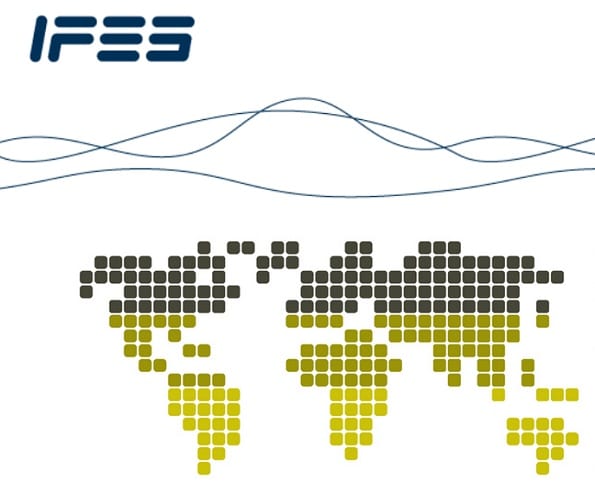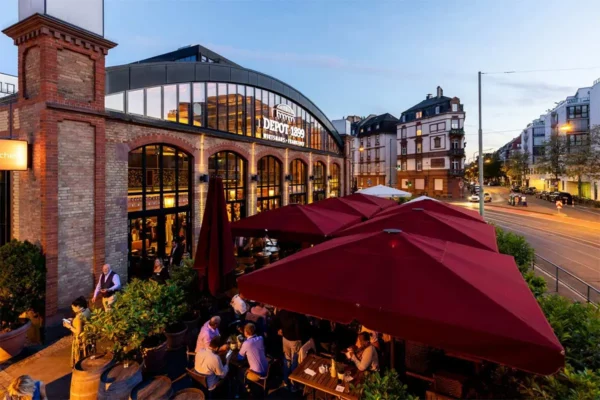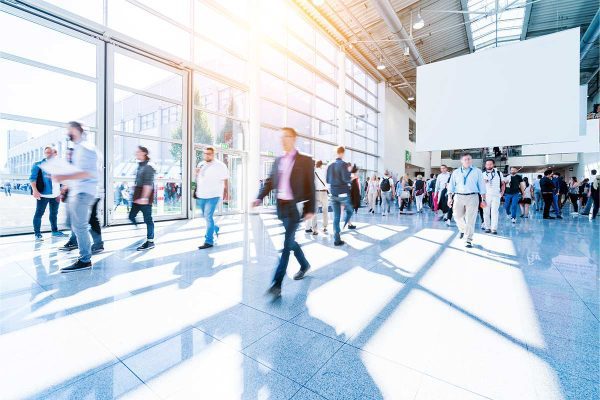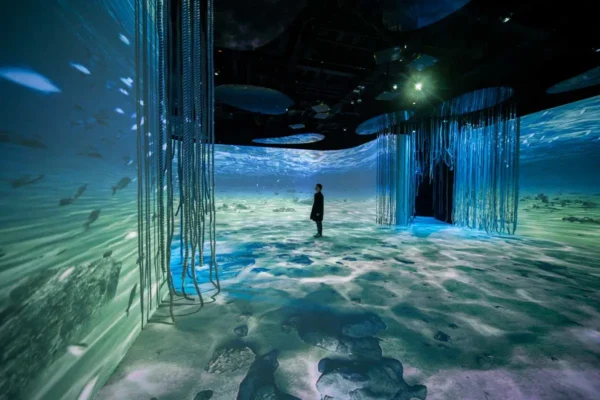
 As an international association, IFES (International Federation of Exhibition and Event Services) gets insights into many trade fairs markets worldwide. For this global outlook, Justin Hawes (pictured right), president of IFES & MD of Scan Display (South Africa) talked to IFES members from five continents.
As an international association, IFES (International Federation of Exhibition and Event Services) gets insights into many trade fairs markets worldwide. For this global outlook, Justin Hawes (pictured right), president of IFES & MD of Scan Display (South Africa) talked to IFES members from five continents.
Across the globe, exhibitions are on hold with little certainty on when they will be able to resume. The exception is the Middle East, which seems to have been better able to stem the spread of the virus.
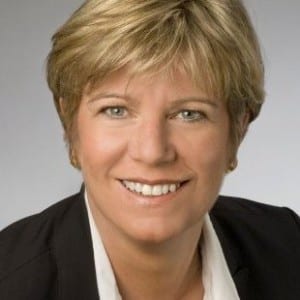 Many organizers have developed online platforms to continue working. However, these have not been successful. Uta Goretzky (pictured left), executive director of IFES, believes that exhibitions work because face-to-face meetings engender trust quickly and effectively, allowing business to proceed. It is much harder to build trust online.
Many organizers have developed online platforms to continue working. However, these have not been successful. Uta Goretzky (pictured left), executive director of IFES, believes that exhibitions work because face-to-face meetings engender trust quickly and effectively, allowing business to proceed. It is much harder to build trust online.
Since the global industry has largely been paused, there is a pent-up demand for tradeshows. UFI’s research also reveals that more value is now placed on face-to-face marketing. Yet, the unknowns around vaccine efficacy, and how long it will take consumer confidence and marketing budgets to return, make it hard to know when exhibitions will resume.
Across the board, it is agreed that events will begin locally, followed by regionally and then internationally. They will likely be smaller with fewer visitors, at least initially, and will depend on technology to improve both safety and reach.
North America
 John Pavek (pictured left), vice president of publishing for EXHIBITOR Media Group in the U.S., says that while a few exhibitions are happening, 90 percent have been postponed or cancelled, “Most analysts predict Q4 in 2021 and Q1 in 2022 will see a strong return of exhibitions, but a lot depends on the vaccine distribution. Exhibition organizers are struggling to make decisions and confirm venue dates.
John Pavek (pictured left), vice president of publishing for EXHIBITOR Media Group in the U.S., says that while a few exhibitions are happening, 90 percent have been postponed or cancelled, “Most analysts predict Q4 in 2021 and Q1 in 2022 will see a strong return of exhibitions, but a lot depends on the vaccine distribution. Exhibition organizers are struggling to make decisions and confirm venue dates.
“What will 2022 look like? It is really hard to say. It will be a year of seeing whether or not attendees and visitors will return in large numbers. This all depends on consumer confidence with regards to travel.”
He also expects many events will include virtual and hybrid elements for those who do not yet feel comfortable attending live events.
 No known trade events are happening in Canada, reports Cam Stevens (pictured right), CEO of Stevens E3 which has offices in Canada and the U.S. “We are in a severe lockdown within our region, with stay-at-home orders that are likely to strengthen before they become more relaxed. We have begun seeing cancellations for events happening spring, summer and fall of this year. Some of this is due to the international nature of the core of our customer base,” he says.
No known trade events are happening in Canada, reports Cam Stevens (pictured right), CEO of Stevens E3 which has offices in Canada and the U.S. “We are in a severe lockdown within our region, with stay-at-home orders that are likely to strengthen before they become more relaxed. We have begun seeing cancellations for events happening spring, summer and fall of this year. Some of this is due to the international nature of the core of our customer base,” he says.
“I expect we will see a return to exhibitions in 2022, unless we cannot get vaccinations more widely distributed or there are side or shortened effects of the vaccine.”
Stevens believes that the return of tradeshows will be like when they were first canceled, “First it was one event, and then a few more, and then we had a tumbling effect as people began to follow the lead of larger events. I believe the same will be true of the return to events. We will see a tentative start to the return to exhibitions that will become a much stronger push in the three to six months following. It will also take longer because it takes a lot longer to plan and prepare for an event than it does to cancel one.”
He anticipates that the new exhibition environment will be altered in the following ways: reduced number of exhibit companies; newly founded exhibit companies from the ashes of the old ones that did not survive; cash shortages to get projects fulfilled; reduced budgets which could mean smaller stands or, depending on social distancing requirements, larger stands but with fewer properties; possible difficulty in shifting dollars from other marketing channels back to exhibitions.
South America
 Alejandro Escalante Aguilar (pictured left), CEO of OMEGA Group in Mexico, says that Latin America has seen the broad cancellation and postponement of all events. It is expected events will start returning optimistically in July/August, or more conservatively in September/October, while the global revival of exhibitions will probably only start in 2022. These timelines also hinge on vaccines successfully bringing infection and mortality rates down.
Alejandro Escalante Aguilar (pictured left), CEO of OMEGA Group in Mexico, says that Latin America has seen the broad cancellation and postponement of all events. It is expected events will start returning optimistically in July/August, or more conservatively in September/October, while the global revival of exhibitions will probably only start in 2022. These timelines also hinge on vaccines successfully bringing infection and mortality rates down.
Aguilar also predicts that the return of live conferences and exhibitions will coincide and will be gradual. “Exhibitors, visitors and buyers are afraid to gather in enclosed places with a high capacity of people,” he says. “On the other hand, people are also tired of being isolated, and all virtual and online event attempts have not worked, as the results are not what was expected of them. These factors will help to drive the return of live events.”
 Marcela Medrano (pictured right), president of Dodecaedro Group—a global collaboration between Dodecaedro in Argentina and Brazil, and Dylunio Spain, says that only outdoor events with a reduced capacity of visitors are allowed in Argentina at present.
Marcela Medrano (pictured right), president of Dodecaedro Group—a global collaboration between Dodecaedro in Argentina and Brazil, and Dylunio Spain, says that only outdoor events with a reduced capacity of visitors are allowed in Argentina at present.
She has also observed that most shows in the first half of 2021 are being rescheduled, with some moving to the second half of the year. Those with an international audience are more likely to be cancelled this year and will “hopefully” return in 2022, albeit on a reduced scale.
“Local companies have budgets that are earmarked for marketing. But as everything is so uncertain, and there is a real possibility of a new lock down, companies are being cautious in confirming their investments in fairs,” she adds.
Europe
Like the rest of the world, no live events are currently taking place in Europe and there is a great deal of uncertainty about when they will resume—although many are expecting the second half of 2021 will start to see improvements.
 Andrew Harrison (pictured right), director of U.K.-based ESSA (Event Supplier & Services Association), says, “Many variables are at play here, such as the continued roll out of vaccines, declining transmission rates, insurance, business travel restrictions, testing and client confidence. Time is running out now, if not already gone, for anything of note to take place in early Spring [March] in the UK. The right noises are being made by several shows in late Spring into summer [May onwards], with some of these events being sizeable. But Autumn exhibition season [from September] is probably a more realistic target,” he says.
Andrew Harrison (pictured right), director of U.K.-based ESSA (Event Supplier & Services Association), says, “Many variables are at play here, such as the continued roll out of vaccines, declining transmission rates, insurance, business travel restrictions, testing and client confidence. Time is running out now, if not already gone, for anything of note to take place in early Spring [March] in the UK. The right noises are being made by several shows in late Spring into summer [May onwards], with some of these events being sizeable. But Autumn exhibition season [from September] is probably a more realistic target,” he says.
He adds, “The world is not moving at the same pace or on the same path in how it has dealt or will continue to deal with this pandemic. This will impact the return of live events, especially those that require travel.”
Harrison also believes that large domestic meetings and conferences will have a better chance of gaining the critical mass they need, unlike exhibitions which generally draw much larger numbers. But “once we get going, every exhibition that gets out of the gate in 2021 will feel like the opening ceremony of the London Olympics for everyone.”
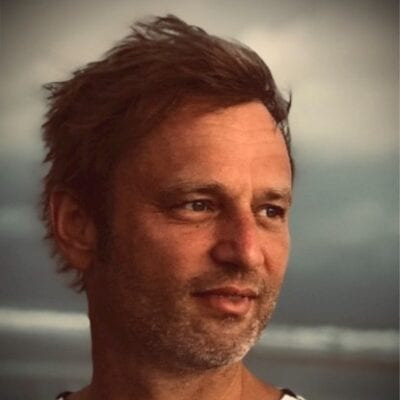 In France, some national shows are still planned for June while others have been postponed as far out as 2023. Philippe Beille (pictured left), CEO of French-based Duo, says, “We all want to believe that as soon as enough people are vaccinated, we can open shows, which would be after our summer [September]. But our country has not been very fast to vaccinate… so we expect to only get back to ‘normal’ in January 2022, gradually.”
In France, some national shows are still planned for June while others have been postponed as far out as 2023. Philippe Beille (pictured left), CEO of French-based Duo, says, “We all want to believe that as soon as enough people are vaccinated, we can open shows, which would be after our summer [September]. But our country has not been very fast to vaccinate… so we expect to only get back to ‘normal’ in January 2022, gradually.”
He adds that UNIMEV, the French Meeting Industry Council, conducted a study with economists. It found that, once exhibitions resume, it will likely take six months for exhibitors to feel safe enough to start planning to spend money on exhibiting again. “This is the reason why our industry is urging the government to provide an expected date for re-allowing shows,” he says. “For example, allowing shows with no limitations in number of attendees in Autumn 2021 would let us get back to ‘normal’ at the end of Q1 in 2022.”
One positive that has come out of the lockdowns is that the French events industry has grouped together to negotiate as one. Beille says, “Everyone from catering to AV, venues, organizers, stand builders… This would be unbelievable before the crisis but is possible now. We hope to keep it like that for the future.”
 Eliseu Sancho (pictured right), MD of Dylunio, says, “In Spain, everything is digital or canceled for the next three months. The first big scheduled shows are Fitur, the biggest local and international tourism show, in May and MWC Barcelona in June. However, in my opinion, the second half of the season will be more exhibition-friendly, due to the vaccine effect.”
Eliseu Sancho (pictured right), MD of Dylunio, says, “In Spain, everything is digital or canceled for the next three months. The first big scheduled shows are Fitur, the biggest local and international tourism show, in May and MWC Barcelona in June. However, in my opinion, the second half of the season will be more exhibition-friendly, due to the vaccine effect.”
He believes that because exhibitions are more difficult to reproduce virtually, they will push to start sooner than conferences. He adds, “I think there will be two different velocities. The local market, following the velocity of the vaccination, will have an  aggressive return, probably between summer and the end of the year. International business will depend on the velocity of vaccination of the different countries involved.”
aggressive return, probably between summer and the end of the year. International business will depend on the velocity of vaccination of the different countries involved.”
Peter Theodorides (pictured left), CEO of Vision in Greece, expects exhibitions will only resume in Southern Europe, soonest, in September 2021. Voicu Sferdianu, CEO of XDS Expo Design System in Romania, agrees, saying “hopefully starting in the second half of 2021, but the comeback will depend crucially on the vaccination success.”
Middle East
 News from the Middle East is more promising. Javier Ferrer (pictured right), director & partner at NOE Group, says that while there have been differing levels of incidence and varied approaches across the region, the spread of the virus has been brought under control through the early adoption of strict health and safety guidelines.
News from the Middle East is more promising. Javier Ferrer (pictured right), director & partner at NOE Group, says that while there have been differing levels of incidence and varied approaches across the region, the spread of the virus has been brought under control through the early adoption of strict health and safety guidelines.
“This is especially the case with the United Arab Emirates, which successfully enforced very comprehensive measures to control the number of cases. It is also the second fastest country to administer vaccines, with approximately 45 percent of total population already having been vaccinated,” he says.
As a result, exhibitions resumed in the UAE in December—although conferences have been slower to return in-person and seem to be continuing digitally. Gitex Technology Week was held from 6-10 December and hosted over 1 200 exhibitors. Meanwhile, IDEX, a Military and Defence show, and Gulfood, the largest worldwide annual food expo, both went ahead on Feb. 21-25. Saudi Arabia and Qatar are resuming trade fairs in a similar manner.
“2021 is a crucial year for the region,” adds Ferrer. “We have invested in business and consumer tourism and expect growth will continue this year if we follow all of the required safety protocols. Expo 2021 is on the horizon [October 1, 2021-March 31, 2022], and in fact the Sustainability Pavilion is already open to the public. They are preparing for a large audience using a planned and programmed approach.
“I believe 2021 will be a year of transition, and 2022 will be the year of recovery. Business needs continuous stimulus and ways to reach clients, and consumers will have a ‘craving’ for travel and attending events.”
Asia
 “There is no clarity on whether the exhibitions planned for 2021 will happen, especially in the first half of 2021. If they do go ahead, they are probably going to be mostly digital or hybrid,” says Sarah Chew (pictured left), executive director of The Kingsmen Experience which has offices in Asia Pacific, the Middle East and America.
“There is no clarity on whether the exhibitions planned for 2021 will happen, especially in the first half of 2021. If they do go ahead, they are probably going to be mostly digital or hybrid,” says Sarah Chew (pictured left), executive director of The Kingsmen Experience which has offices in Asia Pacific, the Middle East and America.
She adds that these outcomes will be largely dependent on travel restrictions, what regulations are in place, and whether it is commercially viable for organisers to run these physical events with lower attendee density. “It also depends on how soon countries get their situation in control, where their exhibitors and visitors typically come from, and the nature of the show and its target market. China has seen some exhibitions return since last year, but these are mostly domestic. Meanwhile events in many Asian cities are being delayed to the Q2 or Q3 in 2021.”
In terms of how aggressively exhibitions will return, Chew says “a lot depends on the vaccine availability, roll-out and acceptance level, amidst new variants and uncertainty over efficacy, which will affect border controls, travelers’ confidence etc. In Asia, the ability of each country to get the pandemic under control is extremely varied. While some may be able to stage events earlier, others will remain in the woods.”
She adds, “We anticipate that more physical events may return in 2022 and pent-up demand may push economic growth further. However, we do not expect exhibitions to return to pre-COVID-19 levels so soon.”
 Speaking about China, Liang Guo (pictured right), director of international cooperation at the Beijing Eagle International Exhibition, says that the virus has been well controlled since April 2020 which allowed the industry to reopen at roughly 50 percent capacity. But, with new cases emerging in January 2021, Beijing stopped all events of more than 100 people and gatherings are not encouraged.
Speaking about China, Liang Guo (pictured right), director of international cooperation at the Beijing Eagle International Exhibition, says that the virus has been well controlled since April 2020 which allowed the industry to reopen at roughly 50 percent capacity. But, with new cases emerging in January 2021, Beijing stopped all events of more than 100 people and gatherings are not encouraged.
“Since the beginning of January, the Chinese government started to vaccinate those who have a high frequency of meeting people, such as taxi drivers, people working in retail, those who need to travel abroad, etc. After the Chinese New Year [12 February 2021], our government will arrange vaccinations for all the citizens. We believe the virus will not disappear; we have to live with it. So, most people see getting the vaccination as the only solution,” he says. “If most people are vaccinated in 2021 or the beginning of 2022, we think we can have at least 60-70 percent turnover came back in 2022.”
Australia
 “The industry is still very nervous of committing to anything at the moment,” says Alan de Beer (pictured left), senior exhibition stand designer at Perth Expohire. “There were some limited numbers of local events and exhibitions that happened late last year in Western Australia, but all of the larger shows were either cancelled or postponed to this year. We are currently hoping that our main home shows and mining exhibitions will go ahead as planned in March. The Mining Expo (AOG) is much smaller than last year, so I sense that exhibitors are still worried about committing to shows.”
“The industry is still very nervous of committing to anything at the moment,” says Alan de Beer (pictured left), senior exhibition stand designer at Perth Expohire. “There were some limited numbers of local events and exhibitions that happened late last year in Western Australia, but all of the larger shows were either cancelled or postponed to this year. We are currently hoping that our main home shows and mining exhibitions will go ahead as planned in March. The Mining Expo (AOG) is much smaller than last year, so I sense that exhibitors are still worried about committing to shows.”
Regarding the return of exhibitions, de Beer says, “I personally think it will take a few years to hit the heights that we have experienced in the past, as exhibitors will still be nervous, and the budgets just won’t be there anymore.”
Africa
 Alastair Stead (pictured right), director of Scan Display Africa, says Rwandans are hopeful that events will resume in the second half of the year, with some large events currently planned in September and November 2021.
Alastair Stead (pictured right), director of Scan Display Africa, says Rwandans are hopeful that events will resume in the second half of the year, with some large events currently planned in September and November 2021.
He adds, “I believe that there is going to be a ‘wait and see’ plan to see who is brave enough to take the first step, and if all goes well others may follow, but it will not be a flood of events. However, with the roll out of vaccines, there is hope that 2022 will be a positive year for events. It will not be back to pre-COVID-19 levels, but there will at least be more activity.”
 James Njuguna (pictured left), CEO of Jim Africa Exhibitions, says, “The exhibitions industry and MICE sector generally is gearing up for its recovery in Kenya. The Ministry of Tourism and its stakeholders have published guidelines for the ‘new normal,’ and we are preparing for the gradual resumption of exhibitions from Q2 moving forward. Exhibitions that were disrupted in March 2021 are now scheduled to take place from May 2022 or in Q3 or Q4. 2022 will likely see the increased recovery of the sector, and many annual exhibitions will resume then.”
James Njuguna (pictured left), CEO of Jim Africa Exhibitions, says, “The exhibitions industry and MICE sector generally is gearing up for its recovery in Kenya. The Ministry of Tourism and its stakeholders have published guidelines for the ‘new normal,’ and we are preparing for the gradual resumption of exhibitions from Q2 moving forward. Exhibitions that were disrupted in March 2021 are now scheduled to take place from May 2022 or in Q3 or Q4. 2022 will likely see the increased recovery of the sector, and many annual exhibitions will resume then.”
He acknowledges that restrictions inhibiting international travel will determine when international exhibitions can restart; “However, we are optimistic that in the next few months and probably by mid-year most of these restrictions will be eased, and that the worldwide vaccination rollout will enable faster resumption of exhibitions. We expect that international travel will have returned to near pre-COVID-19 levels in 2022, and this will facilitate the return of exhibitions.”
What Next?
It is hard to plan for a future when so much is uncertain. But the continued push to reopen the industry is critical. We need to be able to get back to business as soon as possible. Once we have the green light, it will take time to organize shows and gain the confidence and support they need to succeed. We cannot afford more delays.
IFES is the International Federation of Exhibition and Event Services. It is the international association of national associations and companies that are active in the fields of design, conception, production and services for exhibitions, trade fairs and events. IFES offers a platform for international cooperation achieved through networking and knowledge exchange. Founded in 1984, on the initiative of national associations in Belgium, Denmark, France, Germany, Italy, the Netherlands, Great Britain and the USA, IFES celebrated its 35th anniversary in 2019. The association is registered in Brussels under Belgian law. The “global collaboration network” briefly describes IFES. But to understand what IFES is, you have to go deeper into the details. IFES represents more than 280 companies from all over the world. Each of these companies has signed the IFES Code of Conduct—a kind of constitution that regulates the cooperation within the entire network. So when an IFES partner serves the customer of another member, both the customer and the member know that they are being professionally advised and supplied by a company that meets the highest quality standards. This is a member benefit with priceless added value. In order to increase the number of partnerships within the IFES family, the association offers several opportunities for “getting to know each other.” The most prominent one is the IFES Summit, which takes place every year in June. “Summit of Inspiration” was the theme for 2019, when IFES met in the Greek capital Athens. “Winds of Change” will be the motto for the next Summit—sadly, the current situation leaves us with no other choice but to postpone our upcoming Summit in Amsterdam until 2022. The second largest opportunity is the IFES Global Village, which premiered at EuroShop in Düsseldorf in 2017 and continued at EXHIBITORLIVE in Las Vegas and now commutes between the Rhineland and the Nevada desert. IFES Global Village is a joint pavilion, a meeting hotspot that gathers international visitors, IFES Global Village was back at EuroShop again, will premiere at Best of Events RED in Dortmund and come back to ExhibitorLive. Two educational programs offered by IFES—Masterclass and Certified Expert ensure that we have well-trained, globally-minded employees at the service of our industry. The hybrid MasterClass takes place soon on April 22-23. IFES also organizes biweekly educational Solution Sessions and networking sessions, as well as a guided Tour to EXPO Dubai from December 5-9. Sharing knowledge is the foundation of our association. For more info, visit ifesnet.org






